Mind Matters: A Comprehensive Exploration of Mental Health and Well-being
Mental health is an essential aspect of our overall well-being that deserves attention and care. However, people do not understand its importance and the role it plays in our life. In this blog post, we will explore the importance of mental well-being, different types of mental well-being conditions, and their impact on daily life. We will also discuss various methods to recognize and address mental disorders, common mental well-being issues, and early warning signs. Additionally, we will provide self-reflection questions to assess your own mental well-being and offer ideas for incorporating mental well-being and wellness activities into your daily routine.
Understanding Mental Health: What is mental health and why is it important?
Mental health refers to your emotional, psychological, and social well-being. It affects how you think, feel, and act. Mental well-being is important because it contributes to your overall well-being and quality of life. It influences how you handle daily stress, how comfortable you feel with others, and make choices in your daily life.
The difference between mental health and mental illness
A common misconception that people have is that mental health and mental illness are same, but they are not. Mental health refers to a person’s overall mental well-being, while mental illness refers to diagnosable conditions that significantly disrupt a person’s thinking process, feelings, behaviours, or ability to cope with daily life.
Mental well-being levels vary from person to person. Activities like selfcare, engaging in healthy social interactions, managing stress levels and mindfulness promotes mental well-being. While mental illness can be caused by many factors like social isolation, trauma or illness. Commonly seen mental illness are depression, anxiety disorders, schizophrenia, bipolar disorder, post-traumatic stress disorder (PTSD), and obsessive-compulsive disorder (OCD).
How to promote positive mental health
Promoting positive mental well-being involves taking steps to improve and maintain your mental well-being. This can include engaging in self-care activities, seeking support from loved ones, practicing stress management techniques, setting realistic goals, avoiding negative environment and influences and maintaining a healthy lifestyle. It also involves recognizing and addressing any mental health concerns that arise.
Common misconceptions about mental health
There are many misconceptions that people have about mental well-being leading to confusion and misunderstanding. Some common misconceptions include believing that mental health conditions are always severe or permanent, that people with mental health conditions are “weak” or “crazy,” or that mental health issues only affect certain demographics.
Also, the media portrays mental illness as dangerous and link it with violence. However, the majority of individuals with mental health conditions are not violent.
Another common misconception among people is that therapy is for severe mental issues only or only the ‘crazy’ sees a therapist which is also not true. Therapy can be beneficial for managing stress, improving relationships, managing daily life challenges and enhancing overall well-being.
It’s important to educate ourselves and challenge these misconceptions to foster a more inclusive and understanding society.
Different Types of Mental Health Conditions
Mental health conditions can vary widely in their symptoms and characteristics. Understanding different types of mental health conditions can help in recognizing and seeking appropriate treatment. Here is an overview of some common types:
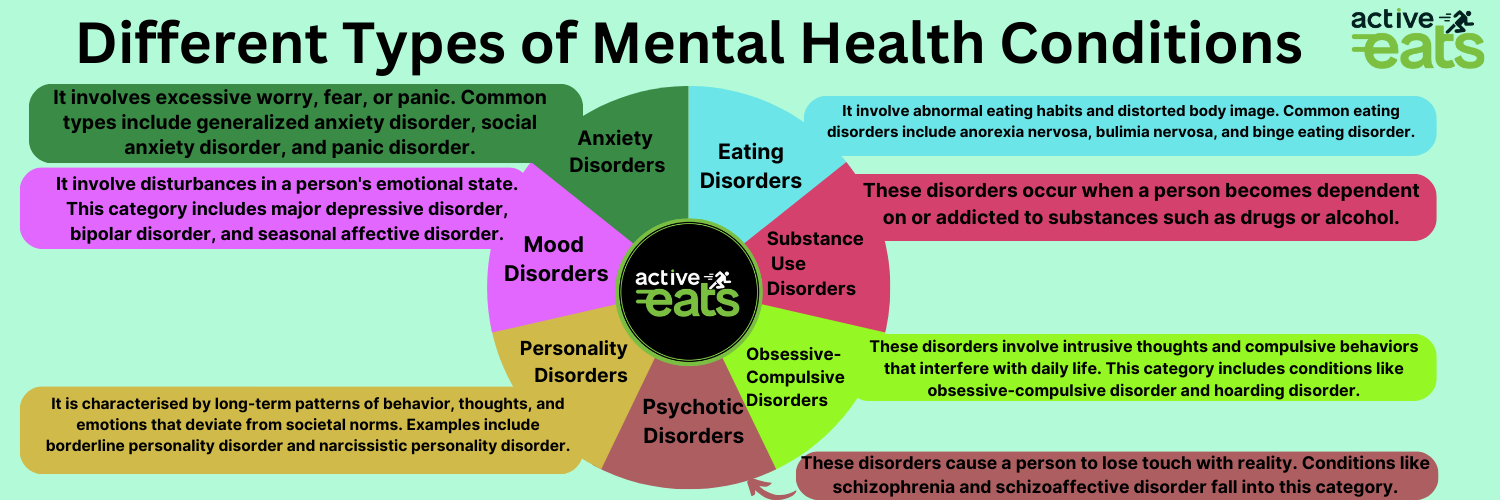
It is important to remember that this is not an exhaustive list, and there are other mental health conditions that may not be covered here. If you or someone you know is experiencing symptoms of a potential mental health condition, seeking professional help for diagnosis and treatment is crucial.
Supporting someone with a mental health condition requires understanding, empathy, and patience. Educating oneself about different types of mental health conditions can help in providing appropriate support and resources.
The Impact of Mental Health on Your Daily Life
Mental well-being plays a crucial role in overall well-being and can have a significant impact on various aspects of your daily life. Here are some ways in which mental well-being can affect your daily life:
- Overall Well-being
Good mental well-being is essential for your overall well-being. It influences your ability to cope with stress, maintain positive relationships, and make healthy choices in life. When your mental well-being is compromised, it can lead to decreased productivity, low energy levels, and an overall sense of dissatisfaction.
- Relationships
Mental well-being has a profound impact on your relationships. When you struggle with mental well-being issues, you may find it challenging to connect with others emotionally or maintain fulfilling relationships. It can also lead to conflicts, misunderstandings, and strained communication with loved ones.
- Work Performance
Your mental well-being can directly affect your work performance. If you are experiencing mental health issues, it can be challenging to concentrate, stay motivated, and meet deadlines at work. It can also impact your ability to make decisions and solve problems effectively.
- Daily Functioning
Poor mental well-being can interfere with your daily functioning. It may affect your sleep patterns, appetite, and energy levels. You may experience difficulty in carrying out simple tasks and lose interest in activities you once enjoyed. Mental well-being issues can also lead to feelings of sadness, anxiety, and irritability, making it challenging to navigate through daily life.
Strategies for managing mental health in daily life
While mental health issues can have a significant impact on your daily life, there are strategies you can implement to manage and improve your mental well-being:
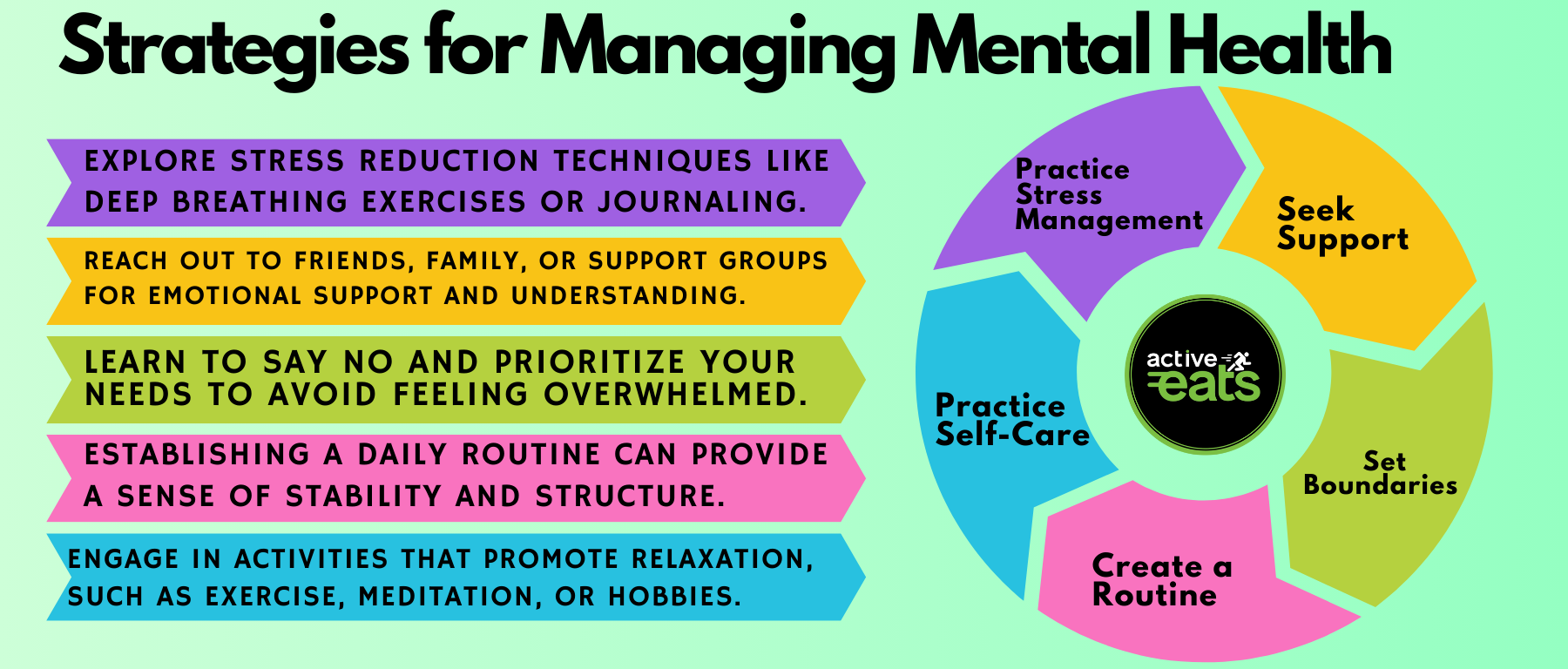
By implementing these strategies and prioritizing your mental well-being, you can start to mitigate the impact of mental health issues and improve your overall well-being.
Recognizing and Addressing Mental Disorders
Understanding what constitutes a mental disorder is crucial for identifying and addressing mental health concerns. By recognizing the signs and symptoms, individuals can seek appropriate help and support. Here’s what you need to know:
What is a mental disorder and how to recognize it
A mental disorder refers to a condition that affects a person’s thinking, mood, behavior, or overall well-being. It can manifest in various ways and may be diagnosed through a comprehensive evaluation by a mental health professional. Recognizing a mental disorder involves being aware of changes in emotions, thoughts, and behaviors that significantly impact daily functioning.
Early intervention and treatment are vital when it comes to mental disorders. Seeking support as soon as potential warning signs arise can help prevent the condition from worsening. Early intervention also increases the likelihood of successful treatment outcomes and promotes overall well-being.
How to approach someone about their mental health concerns
Approaching someone about their mental well-being concerns requires sensitivity, empathy, and open communication. Use active listening skills and express genuine concern. Offer a non-judgmental and supportive environment where the person feels comfortable discussing their struggles. Encourage seeking professional help and provide information about available resources.
Resources and support available for addressing mental disorders
Fortunately, there are numerous resources and support systems available for individuals facing mental disorders. Mental health professionals, such as psychologists or psychiatrists, can provide diagnosis, treatment, medication and therapy. Support groups, hotlines, and online communities also offer valuable assistance and a sense of connection with others facing similar challenges.
Note: If you or someone you know is in crisis or experiencing severe symptoms, do not hesitate to contact emergency services or a mental well-being helpline. Immediate professional assistance is essential in such situations.
Common Mental Health Issues
An overview of common mental health issues:
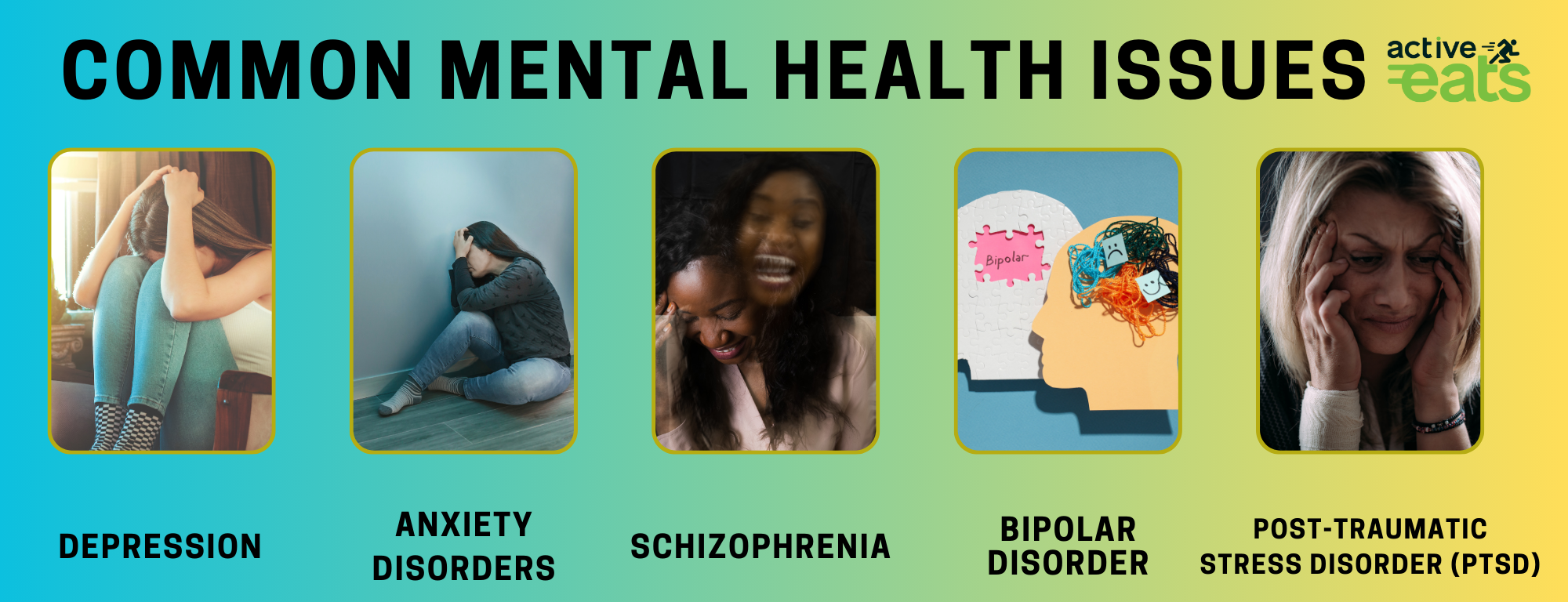
Risk factors and causes of mental health issues:
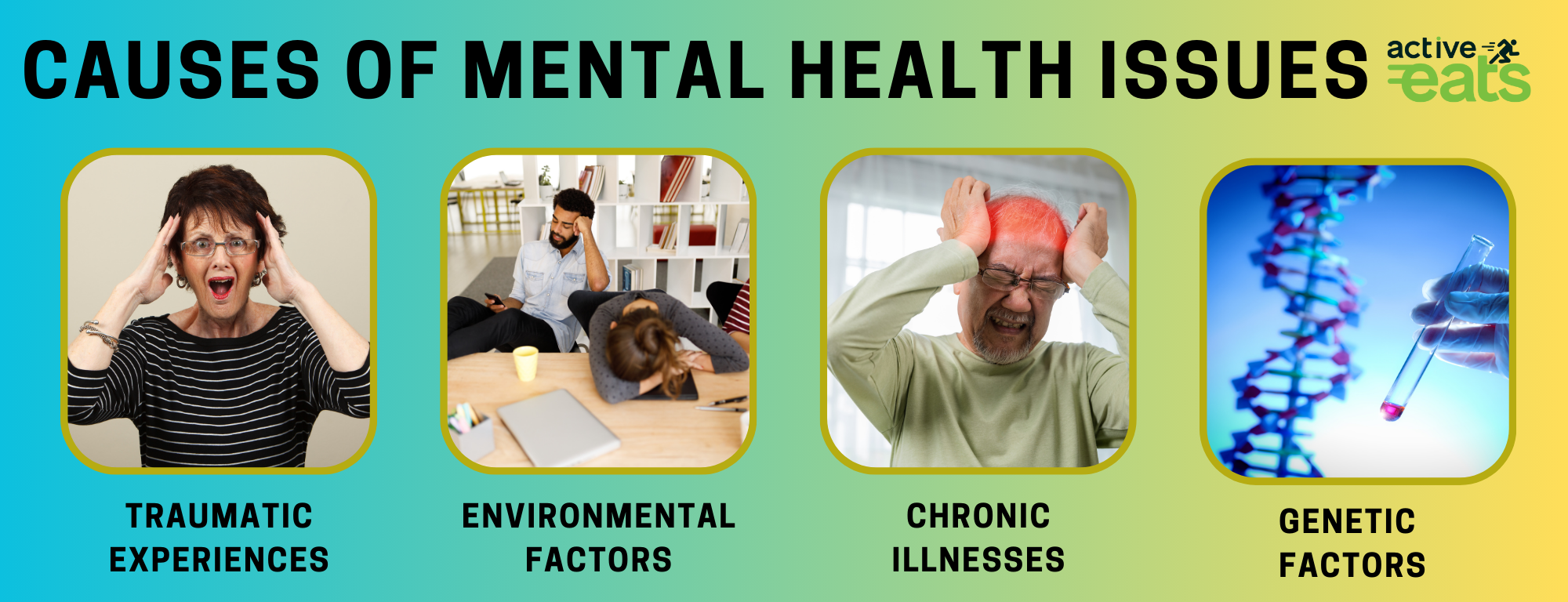
The prevalence of Mental health Issues in society:
Mental health issues are common worldwide. Approximately 1 in 5 adults experience a mental well-being issue in a given year. Mental health issues can affect individuals of all ages, genders, and backgrounds. Depression disorder and substance abuse disorder are the most common mental health issues prevailing in society but very few are able to recognize it.
Depression and anxiety disorders are more common in women, while substance use disorders may be more prevalent in men. Additionally, certain mental well-being issues, like attention-deficit/hyperactivity disorder (ADHD), often manifest in childhood.
Environmental and social factors, such as trauma, adverse childhood experiences, poverty, discrimination, and access to healthcare, can influence the risk of developing psychological health issues.
The impact of stigma on individuals with mental state issues can lead to discrimination and prejudice against individuals with mental state issues and it can discourage people from seeking help and support.
Early Warning Signs of Mental Disorders
Recognizing signs of mental health issues is crucial for early intervention and treatment. Here are some common early warning signs to watch out for:
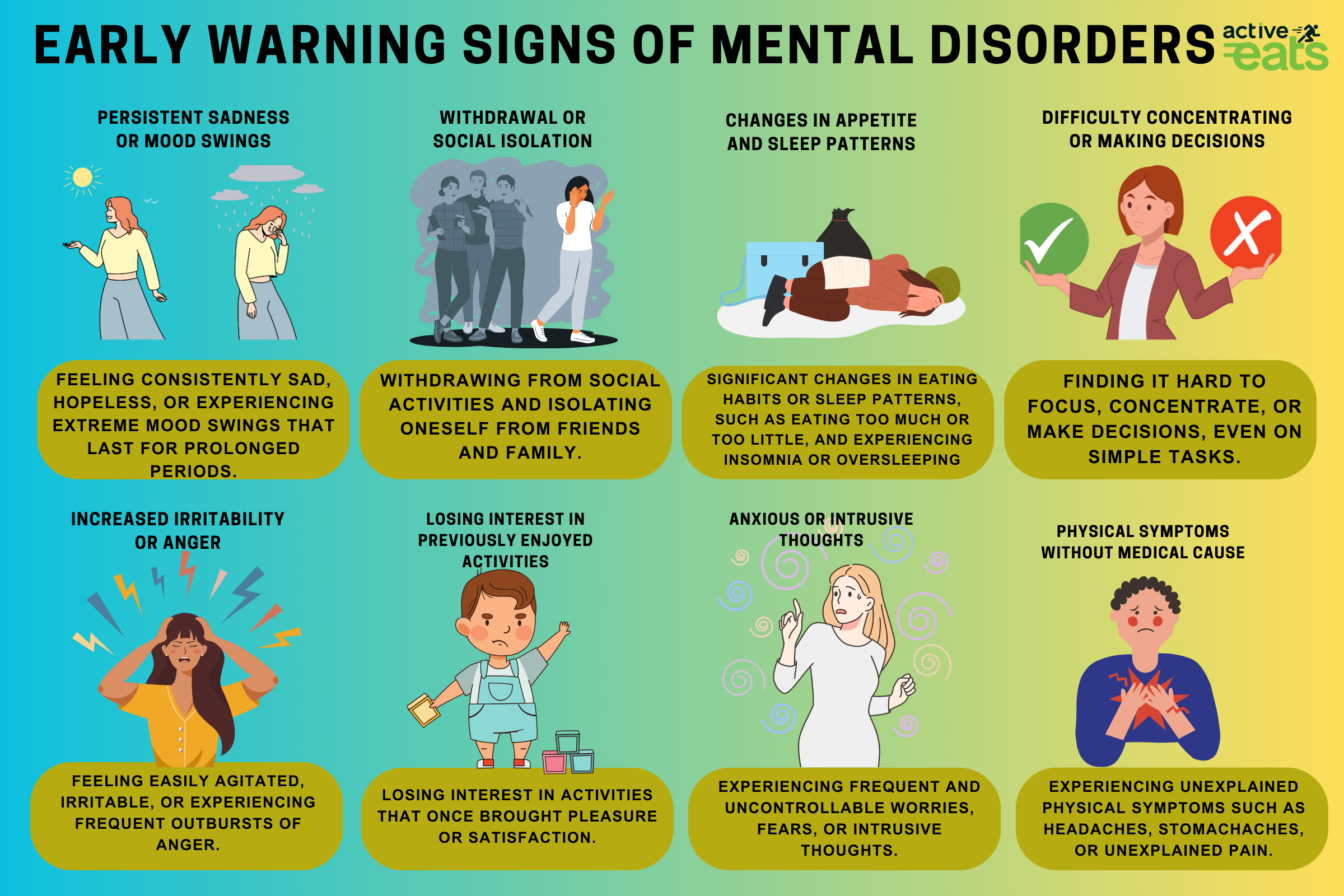
If you or someone you know is experiencing these warning signs, it is important to seek professional help as early as possible. These signs may indicate the presence of a mental disorder that requires intervention and treatment.
Questions to Ask Yourself to Assess Your Mental Health
Self-reflection questions can help you evaluate your mental well-being and identify potential areas of concern. Consider asking yourself the following questions:
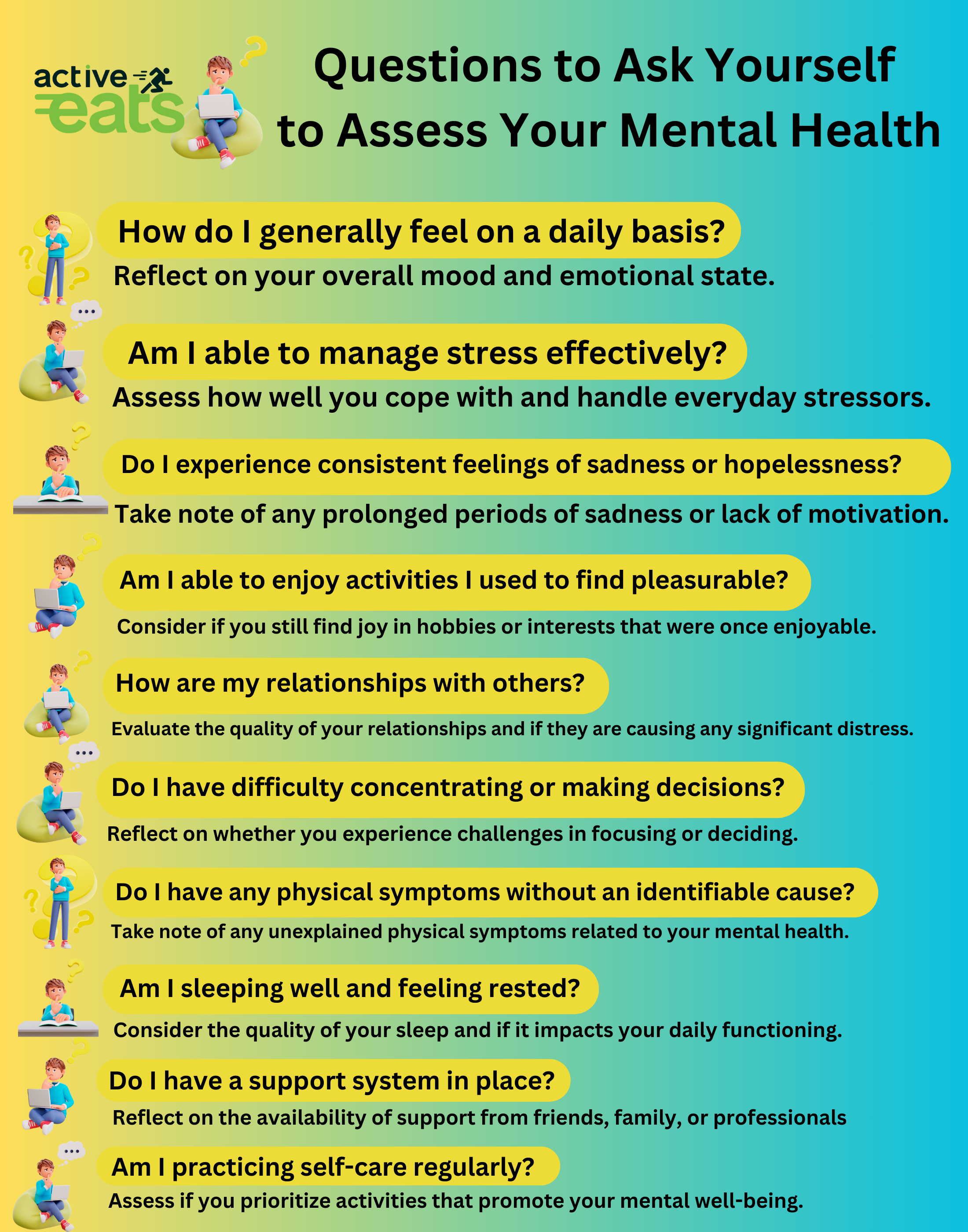
If you notice any persistent or concerning signs from your responses, it may be valuable to seek professional guidance to assess your mental health further.
Incorporating Brain Health and Wellness Activities into Your Daily Routine
Engaging in brain health and wellness activities can have significant positive impacts on your overall well-being. Here are some ideas for incorporating self-care practices into your daily life:
Remember, creating a routine that prioritizes mental well-being is essential. Take small steps each day to incorporate these activities into your schedule and make self-care a daily habit.
Conclusion: Taking Care of Your Mental Well Being
The importance of prioritizing mental well-being cannot be overstated. Just as we take care of our physical health, it is essential to pay attention to our mental well-being. By acknowledging the impact that mental well-being has on our overall well-being, we can make informed decisions to improve our quality of life.
It is crucial to remember that seeking professional help when needed is not a sign of weakness but rather a necessary step towards healing and growth. Just as we would consult a doctor for physical ailments, reaching out to a mental well-being professional can provide the support and guidance required to navigate mental well-being challenges.
By understanding and addressing mental well-being concerns, we can create a life that prioritizes our well-being. Remember, you are not alone in this journey. There are resources and support available to help you through any mental well-being issues you may be facing.
Take the time to assess your own mental well-being. Reflect on the self-reflection questions provided earlier and pay attention to any signs that indicate potential mental well-being concerns. By addressing these areas of concern and adopting mental well-being and wellness activities into your daily routine, you can foster a sense of balance and resilience.
Remember, self-care should not be an afterthought. It should be an integral part of your daily life. Make time for activities that nourish your mind, body, and soul. Prioritize your mental well-being and watch as it positively impacts all aspects of your life, including your relationships, work, and overall happiness.
By taking care of your mental well-being, you are investing in your future self. Remember to be kind and patient with yourself throughout this process. Growth and healing take time, but with the right resources and support, you can create a life that is centered around mental well-being.
Start today. Prioritize your mental well-being and watch as your life transforms.

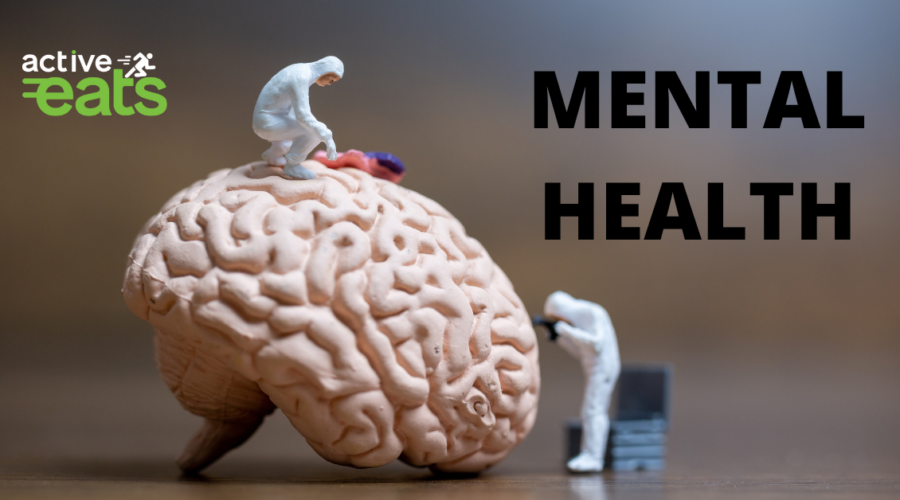
Top 5 Shocking Side Effects of Smoking on Health - coachactiveeats.com
[…] for individuals, including improved lung function, reduced risk of heart disease, and enhanced mental well-being. However, it is important to note that alternatives such as smokeless tobacco, e-cigarettes, and […]
Quality Sleep and Health - coachactiveeats.com
[…] sleep is associated with improved mental health and emotional […]
Healthy Indoor Plants for Your Home and Workplace - coachactiveeats.com
[…] or working space, but they also come with a range of benefits for your physical health as well as mental well-being. In this blog post, we will explore the many benefits of having house plants in your home and […]
Early Health Signs and Warnings - coachactiveeats.com
[…] Changes in appetite, sleep patterns, or energy levels can be signs of mental illness. […]